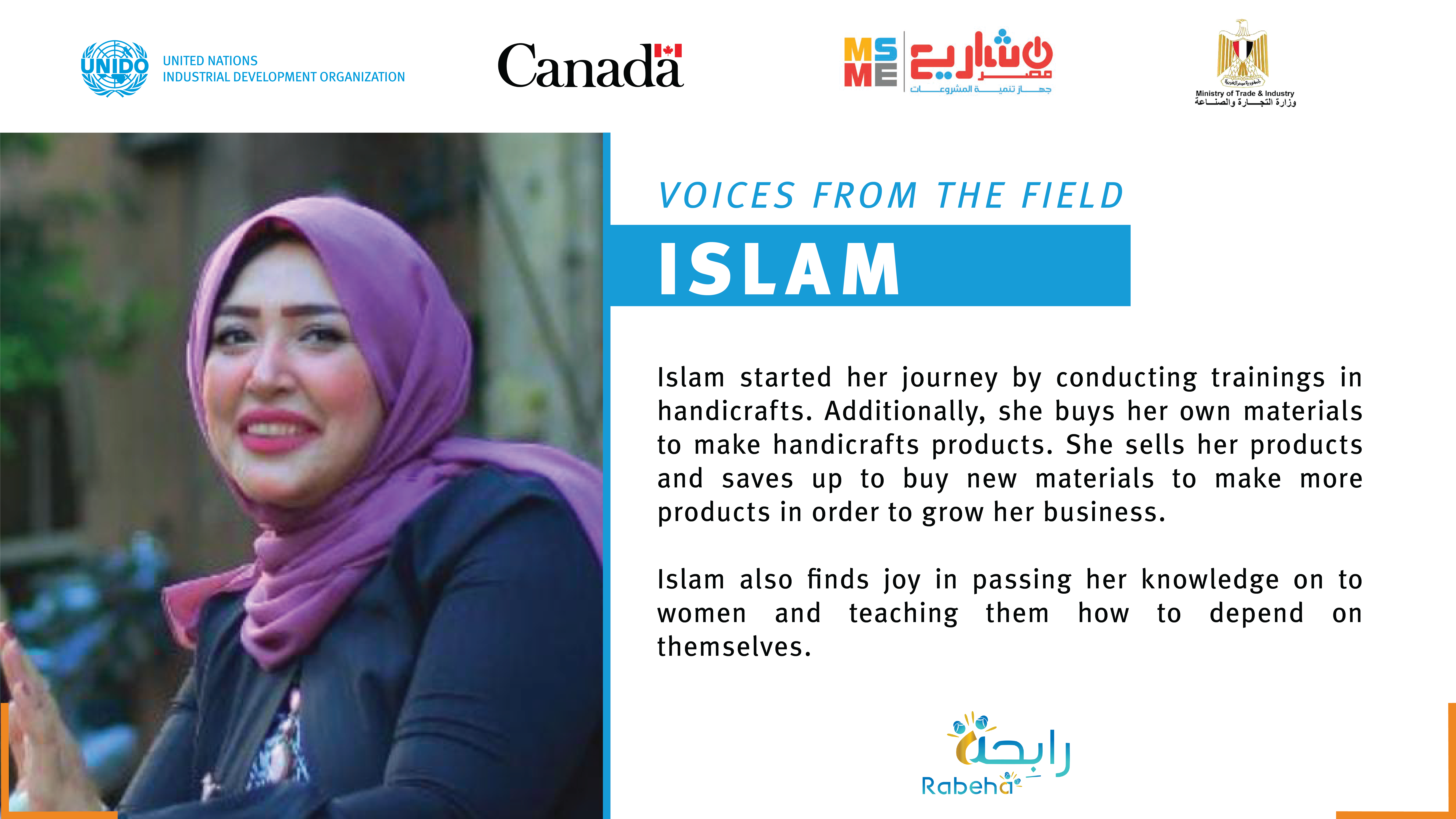

With their own businesses and as workers, Egypt’s women can be winners
12 January 2022 Charles Arthur and Navjot Kaur

Rabeha is Arabic for “winner”. It is the brand name for a programme to provide women in Egypt with the means, knowledge and confidence to realize their unique and valid work-related goals, either as entrepreneurs, early-stage businesswomen or as paid employees.
The Rabeha programme, run jointly by the United Nations Industrial Development Organization (UNIDO) and UN Women, aims to significantly boost women’s economic empowerment in Egypt by mid-2024. It is funded by Global Affairs Canada, and is being implemented in partnership with the National Council for Women, the Ministry of Trade and Industry, and the Micro, Small and Medium Enterprises Development Agency.

In line with Egypt’s Sustainable Development Strategy: Egypt Vision 2030, the joint programme aims to increase the economic participation of at least 6,300 women in Egypt’s private sector across growth-oriented sectors in seven governorates: Cairo, Giza, Alexandria, Beheira, Fayoum, Beni Suef and Al-Minya. It will harness these women’s full potential as entrepreneurs and employees in the following target value chains: date palm; medicinal and aromatic plants; handicrafts, and information and communications. It adopts a multi-sectoral approach and combines activities at policy, institutional and individual levels.
UNIDO has conducted three value chain studies within the framework of the programme: for the date palm, medicinal and aromatic plants, and handicrafts sectors. These studies have informed the development of evidence-based interventions that consider the real needs of women business owners and employees, and the challenges they face in each governorate and sector.
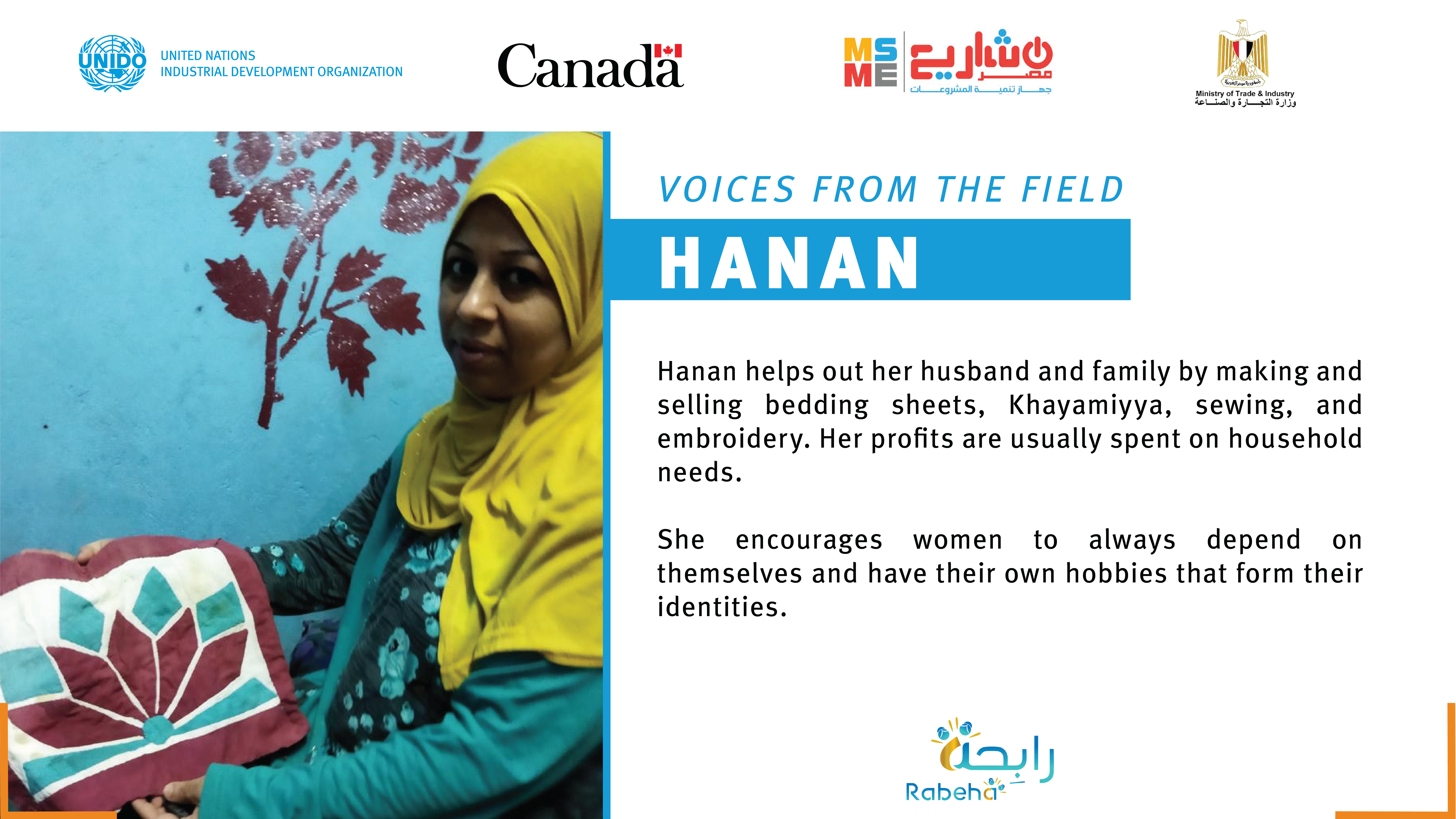
The value chain findings show that handicrafts is the most promising sector for women-led businesses and decent work, with a higher number of female-led businesses and workers engaging in value-added activities compared to the date palm and medicinal and aromatic plants sectors, where women are typically limited to working in the basic stages of the value chain.
Ehsan is one of the project beneficiaries. She started learning how to make bags while still at school when she disassembled bags to understand how to make them from scratch. She learned something new every time she made a new bag. This experimental approach helped her advance her product knowledge and skills to reach the next level. Ehsan also relies on online training resources to broaden her expertise. She uses the humble profits to buy new supplies for her small business. Her message to aspiring women entrepreneurs interested in handicrafts is to get started right away, and seek knowledge on how to grow their skills and business.
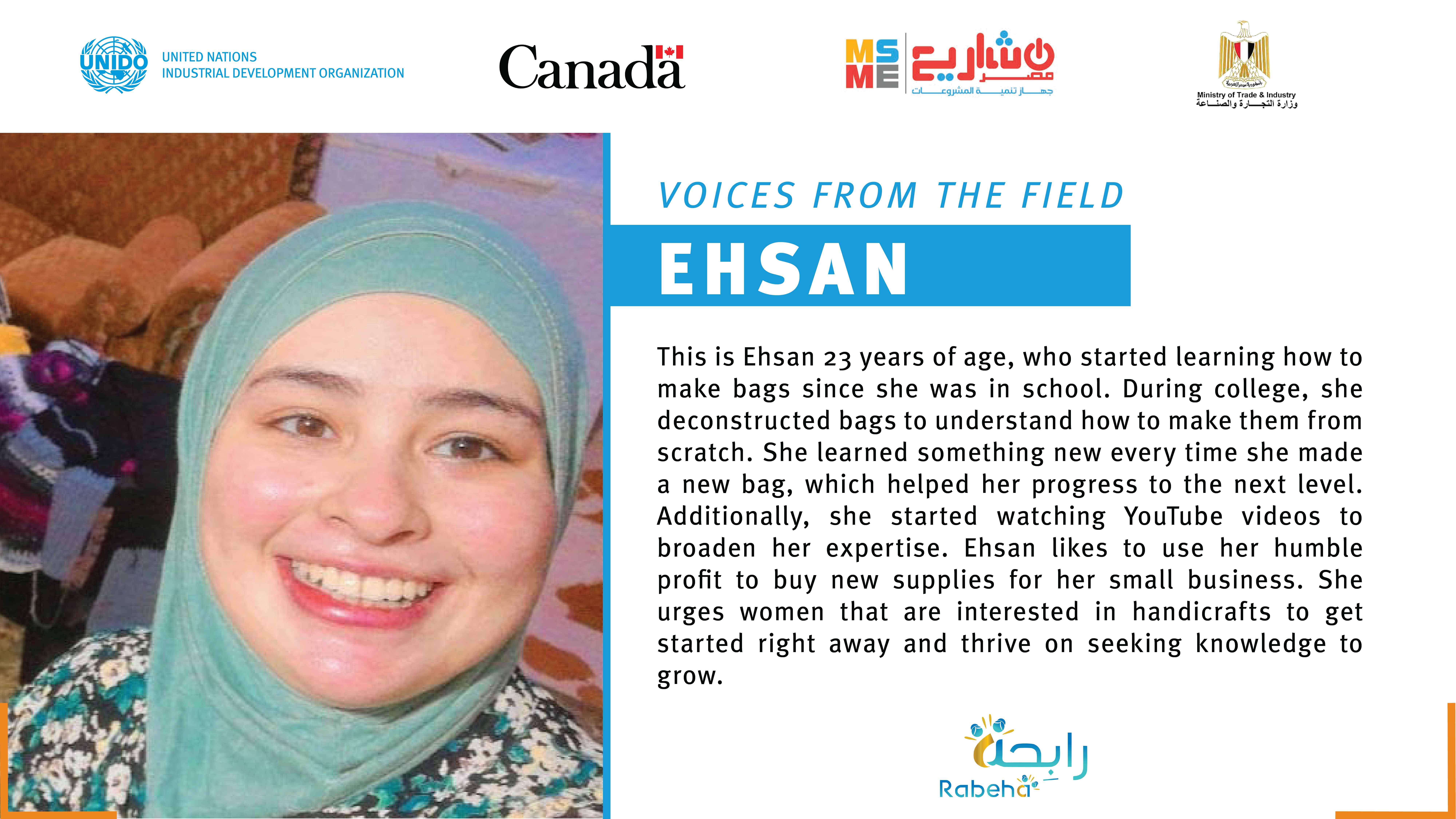
Another beneficiary is Fakeeha, who is employed at a workshop where people learn how to make souvenir items that are sold at bazaars and stores in the Red Sea resorts of Sharm el Sheikh and Hurgada. She also runs her own home-based business, making leather purses, home furnishing and custom tailoring. She says she can manage her business while taking care of her family, and she urges other women to do the same by creating businesses to support themselves.
UNIDO’s is planning training interventions to target the needs of women entrepreneurs and employees, which will include product development, innovation, connectivity, branding and marketing and promotion strategies. The approach includes digitizing existing business models through e-marketing and sales, with a view to supporting business continuity during the COVID-19 pandemic and beyond, as well as training in technical skills demanded by the key value chains.
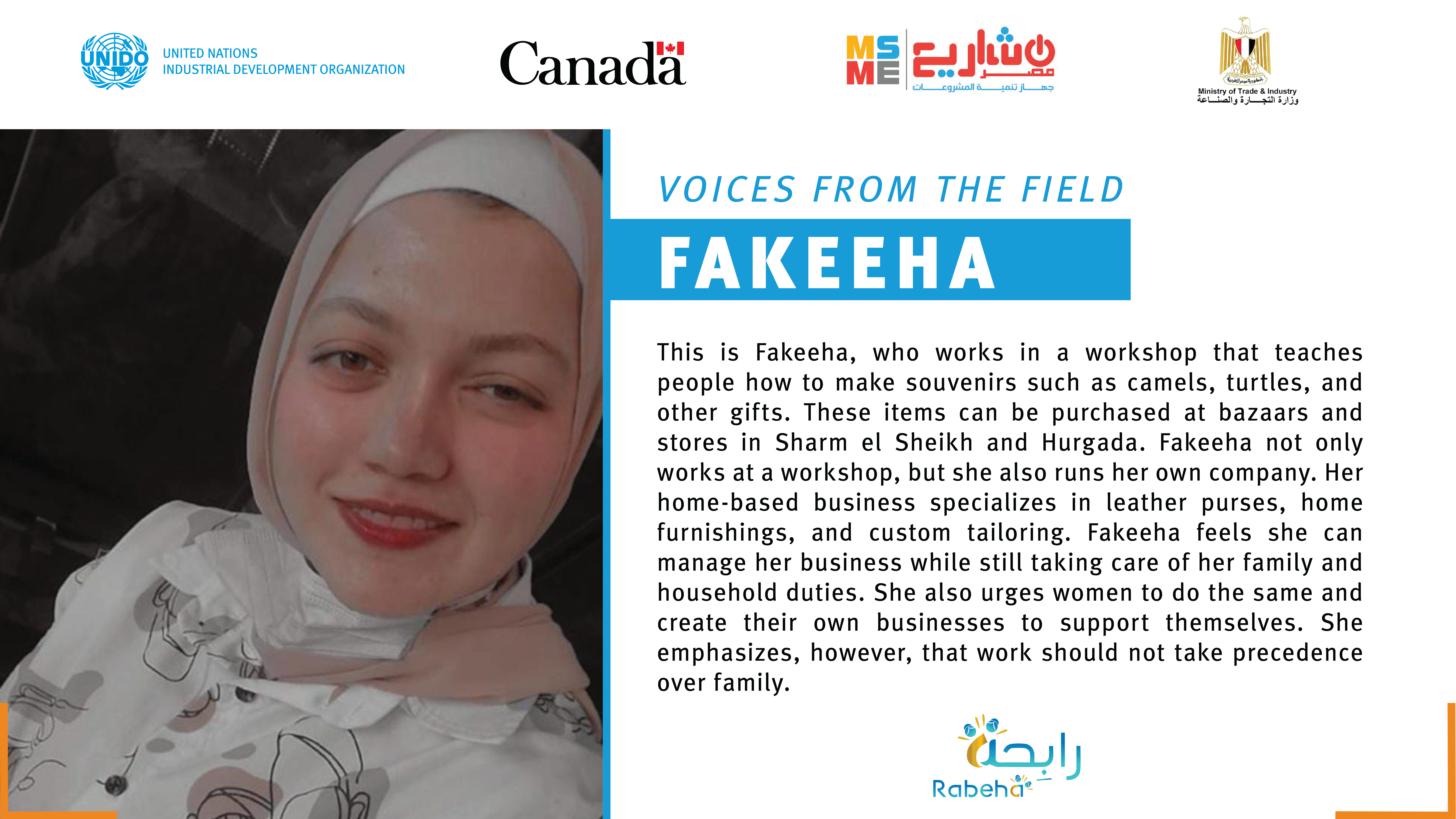
As part of the programme, UNIDO and UN Women Egypt provided business development, product branding and legal consultations to women entrepreneurs at the Micro, Small and Medium Enterprises Development Agency’s annual Turathna handicrafts exhibition in October 2021. The consultations involved a rapid diagnosis of business needs and challenges, followed by the provision of tailored business advice and strategies aimed at improving the productivity and profitability of women-led businesses. UNIDO’s participation in Turathna complements its ongoing work in the handicrafts sector and contributes to achieving its target of providing support to 1,100 aspiring and existing entrepreneurs.
UNIDO will launch training for government officials from five central institutions in Cairo in early 2022. This training of trainers aims to enhance the government support services targeting women entrepreneurs and business owners in Egypt so that they are more gender-responsive and tailored to the real needs of women-led businesses and entrepreneurs, and in general are more accessible to these groups of women in the key sectors of UNIDO’s interventions.
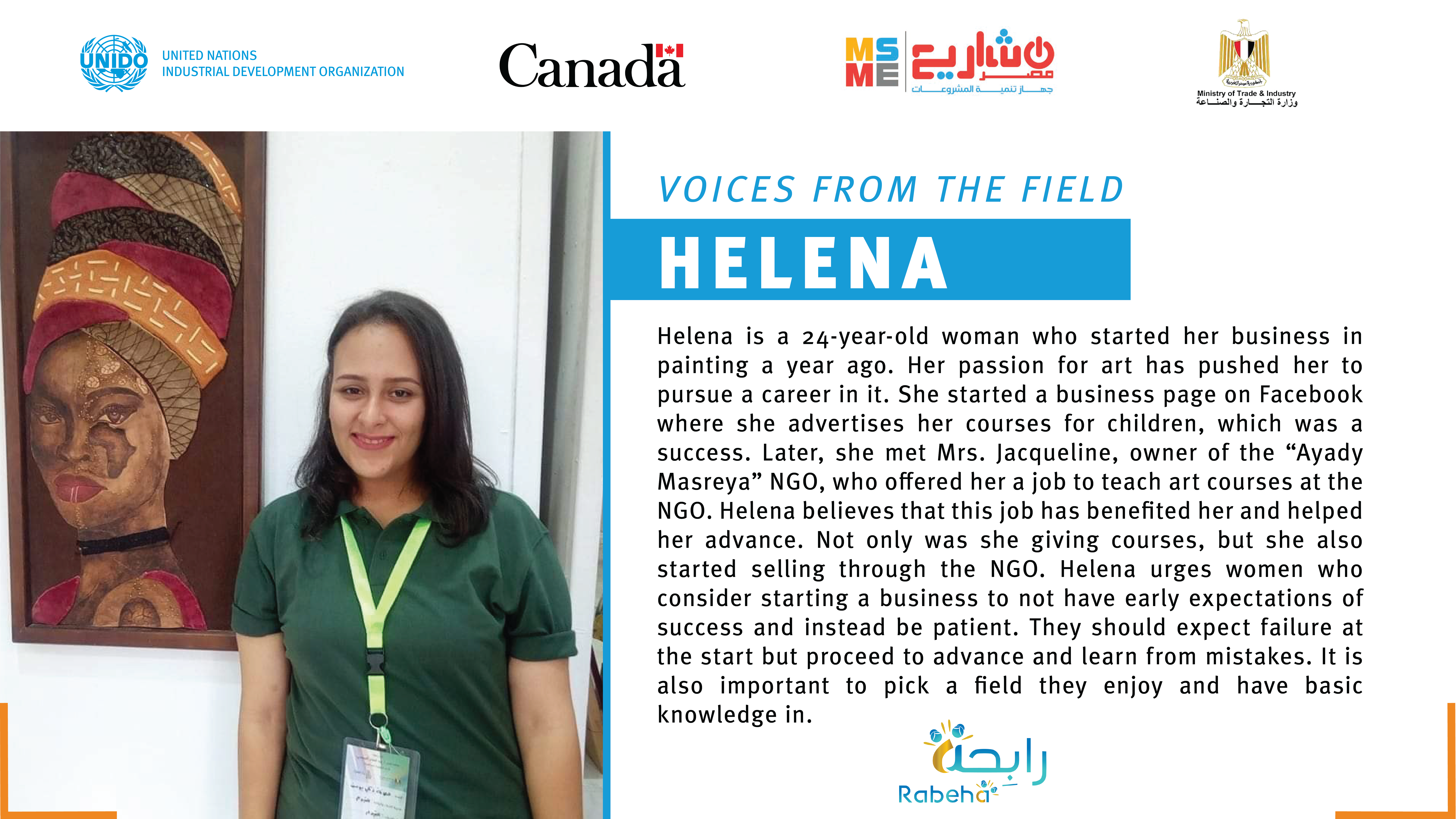
UNIDO and UN Women are committed to the achievement of the Sustainable Development Goals, and the Rabeha joint programme in particular contributes to SDG5: Gender Equality; SDG8: Decent Work and Economic Growth; and SDG10: Reduced Inequalities.
See:
Gender-sensitive analysis of the palm date sector in Fayoum and Giza governorates
Gender-sensitive analysis of the handicrafts sector in Al-Minya governorate
Analysis of the medicinal and aromatic plants sector in Beni Suef governorate
Read about UNIDO's Egypt Programme for Country Partnership